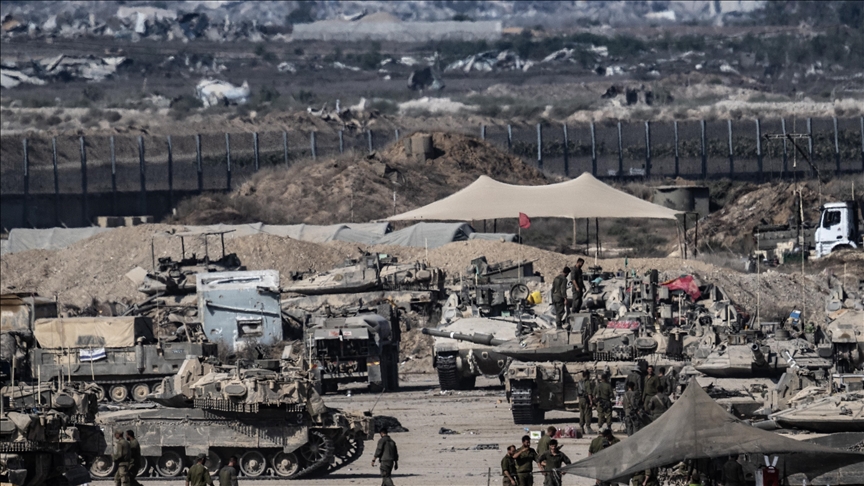seniorspectrumnewspaper – A United Nations commission of inquiry has reported that Israel has committed genocide against Palestinians in Gaza. The 72-page document concludes there is reasonable evidence that Israel has carried out four of five genocidal acts defined by international law since the 2023 conflict with Hamas began. These acts include killing members of a group. Causing serious bodily and mental harm, deliberately inflicting destructive living conditions, and preventing births.
Read More : £5bn AI Investment Boost Announced for UK by Google’s Parent Firm
The commission points to statements from Israeli leaders and patterns of military conduct as evidence of genocidal intent. Israeli forces launched their campaign in Gaza following Hamas’s unprecedented attack on southern Israel on 7 October 2023. Which killed about 1,200 people and took 251 hostages. Since then, at least 64,964 Palestinians have died in Israeli strikes, according to Gaza’s Hamas-run health ministry. The UN generally views these figures as credible.
Most Gazans have faced repeated displacement, with over 90% of homes damaged or destroyed. The territory’s healthcare, water, sanitation, and hygiene systems have collapsed. UN food security experts have declared a famine in Gaza City. The commission was created by the UN Human Rights Council in 2021 to investigate violations of international humanitarian and human rights law.
Chaired by Navi Pillay, former UN human rights chief and Rwanda genocide tribunal president. The panel also includes Australian lawyer Chris Sidoti and Indian housing rights expert Miloon Kothari. The commission previously found that Hamas and other Palestinian groups committed war crimes on 7 October 2023. And that Israeli forces committed crimes against humanity and war crimes in Gaza.
The new report calls the findings the “strongest and most authoritative UN assessment” of the conflict, but clarifies it does not officially represent the UN. It alleges Israel’s actions, including attacks on civilians and destruction of essential infrastructure, meet the legal definition of genocide under the 1948 Genocide Convention.
Israeli Rejection, International Reactions, and Legal Challenges Ahead
Israel strongly rejected the report, labeling it “distorted and false.” The Israeli foreign ministry accused the commission members of serving as “Hamas proxies” and said the report relied on “fabrications” and “falsehoods.” It stressed that Israel’s military operations are defensive, aimed at defeating Hamas and securing hostage releases.
Israeli political and military leaders, including President Isaac Herzog, Prime Minister Benjamin Netanyahu, and former Defence Minister Yoav Gallant, have insisted their actions comply with international law. Yet, the commission stated these leaders incited genocide in their speeches. Netanyahu vowed “mighty vengeance” and called Gaza City a “wicked city,” while Gallant referred to Palestinians as “human animals.” Herzog blamed the entire Palestinian population for Hamas’s attack.
The commission said Israel is responsible for failing to prevent, committing, and not punishing genocide. It called on all countries to act under the Genocide Convention to prevent and punish genocide, warning that inaction could imply complicity.
International reactions vary. UN human rights chief Volker Türk said the court must decide if the situation legally qualifies as genocide but acknowledged growing evidence. The UK government emphasized that, regardless of legal labels, Israel’s actions remain “appalling.”
Read More : China Challenges NVIDIA’s Mellanox Acquisition on Antitrust Grounds
The International Court of Justice is currently hearing a genocide case against Israel, filed by South Africa. This process may take years. Israel has dismissed the case as “wholly unfounded” and politically biased.
The commission’s three members plan to step down later this year, and Israel has called for the panel’s abolition. Meanwhile, various human rights groups and independent experts have also accused Israel of genocide.
This report deepens the international divide over the conflict in Gaza and underscores the urgent need for legal and diplomatic efforts to address the crisis. The coming months will be crucial for global institutions tasked with accountability and justice.


